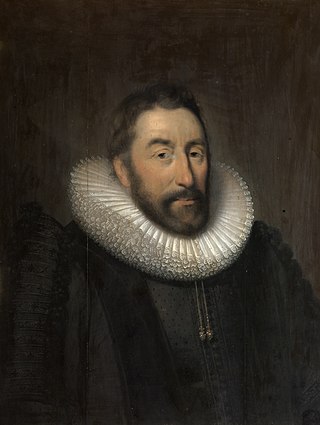Related Research Articles

Sir Uvedale Price, 1st Baronet, author of the Essay on the Picturesque, As Compared with the Sublime and The Beautiful (1794), was a Herefordshire landowner who was at the heart of the 'Picturesque debate' of the 1790s.

Sir Robert Price, 2nd Baronet was a British baronet and Member of Parliament.

Robert Price was a British judge and politician.

Thomas Foley, of Stoke Edith Court, Herefordshire, was a British landowner and Tory politician who sat in the English and British House of Commons between 1691 and 1737. He held the sinecure office of auditor of the imprests.
Paul Foley, Newport, Herefordshire, was an English barrister and politician who sat in the House of Commons from 1713 to 1715.
This is a list of Sheriffs and, since 1998, High Sheriffs of Herefordshire

James Scudamore, 3rd Viscount Scudamore, was an English landowner and Tory politician who sat in the House of Commons from 1705 to 1716.

Sir Walter Pye of The Mynde, Herefordshire was an English barrister, courtier, administrator and politician who sat in the House of Commons from 1621 and 1629.
James Tomkins was an English politician who sat in the House of Commons between 1624 and 1629.

Sir Herbert Perrott was an English politician who sat in the House of Commons at various times between 1659 and 1679.
Sir Thomas Tomkins JP was an English politician who sat in the House of Commons at various times between 1640 and 1674. He supported the Royalist cause in the English Civil War.

James Pytts was an English landowner and politician who sat in the House of Commons at various times between 1660 and 1686.
Colonel Henry Cornewall was an English soldier, courtier and Member of Parliament.

Sir Thomas Morgan, 3rd Baronet was a British landowner and politician who sat in the House of Commons from 1712 to 1716.
John Birch of Garnstone manor, Herefordshire, was an English lawyer and Whig politician who sat in the English and British House of Commons between 1701 and 1735.
William Wardour ), of Whitney Court, Herefordshire, was a British politician who sat in the House of Commons between 1727 and 1746.

Robert Price (1717–1761) was an English gentleman, known as an artist for his drawings, and as a musical amateur. He contributed to the garden design at the family property of Foxley, Herefordshire, was an art patron, and was the father of Uvedale Price, theorist of the picturesque.
Roger Vaughan JP DL was an English politician and courtier who was a Member of Parliament for Hereford.

Foxley is a rural estate, and the former Foxley Manor country seat, in Herefordshire, England. The Manor is associated with the judicial, political, artistic and later ennobled Price family, and became the site of the Second World War Foxley Camp.
The Price baronetcy, of Foxley in the County of Hereford, was created in the Baronetage of the United Kingdom on 12 February 1828 for Uvedale Price, best known for his writings on the Picturesque. His only son, the 2nd Baronet, sat as Member of Parliament for Herefordshire. The title became extinct on his death without issue in 1857.
References
- ↑ Robinson, Rev. Charles John (1873). A History of the Mansions and Manors of Herefordshire. Longman & Co.
- ↑ Hillaby, Joseph (1967). "The Parliamentary Borough of Weobley 1628-1708".Transactions of the Woolhope Naturalists' Field Club. vol.XXXIX pp.104-151
- ↑ "Price, Uvedale (PRY703U)". A Cambridge Alumni Database. University of Cambridge.
- ↑ Admissions Register VOL 1 1420-1799. The Honourable Society of Lincoln's Inn. 1896.
- ↑ Griffith, John Edwards (1914). Pedigrees of Anglesey and Carnarvonshire Families. Horncastle: Morton & sons. (Duncumb and Robinson give 1719, but that would be after the births of three of the children.)
- 1 2 "PRICE, Uvedale Tomkyns (1685-1764), of Poston Lodge and Foxley, Yazor, Herefs". History of Parliament Online (1690-1715). Retrieved 5 April 2019.
- ↑ Hillaby, Joseph (1967).
- ↑ Duncumb, Rev. John. Collections Towards the History and Antiquities of the County of Hereford.
- ↑ "PRICE, Uvedale (1685-1764), of Foxley, Herefs". History of Parliament Online (1715-1754). Retrieved 5 April 2019.
- ↑ Griffith, John Edwards (1914).